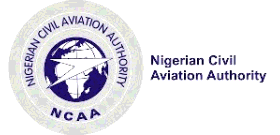 Nigeria’s Airstrip Regulations Set to Reshape Travel Landscape
Nigeria’s Airstrip Regulations Set to Reshape Travel Landscape
The Nigerian Civil Aviation Authority (NCAA) is embarking on a significant regulatory overhaul of the nation’s airstrips, promising a safer and more efficient travel experience. This initiative presents both opportunities and challenges for African travel agents, requiring them to adapt their operations to a changing landscape.
At a recent stakeholders’ meeting, Godwin Balang, Director of Aerodrome and Airspace Standards at the NCAA, announced that all local airports in Nigeria must obtain the necessary permits by January 1, 2026. This move aims to standardize safety and operational procedures across the country’s approximately 92 airstrips, of which 68 are federally owned and 24 are privately operated. This initiative is expected to significantly impact regional air travel, creating new dynamics for travel professionals.
The NCAA’s initiative, themed “Enhancing Safety, Compliance, and Collaboration for Efficient Airstrip Operations,” underscores the unique nature of these smaller airfields and the need for tailored regulations. The authority is reviewing existing guidelines to ensure they align with the evolving aviation sector. This comprehensive approach is poised to enhance safety and security, directly benefiting travelers and creating a more reliable environment for the travel trade.
The Civil Aviation Act 2022 empowers the NCAA to enforce these regulations, ensuring compliance with stringent safety standards. This legal framework provides a solid foundation for the regulatory overhaul, reinforcing the government’s commitment to improving air travel safety across the country. For travel agents, this translates to greater assurance and reliability when planning itineraries involving regional airstrips.
The new regulations present a unique opportunity for travel agents to expand their offerings. With improved safety and operational efficiency, regional airstrips can become more viable options for both tourism and business travel. This opens up new possibilities for travel agents to create specialized itineraries, connecting travelers to previously less accessible destinations. However, it also requires agents to stay informed about permit statuses and potential service disruptions.
The enhanced safety and security measures are a key selling point for travel agents. Travelers are increasingly prioritizing safety and reliability, and the NCAA’s initiative directly addresses these concerns. By highlighting these improvements, travel agents can build trust with their clients and attract a wider customer base. This focus on safety also aligns with global travel trends, making Nigeria a more competitive destination in the international market.
The January 1, 2026 deadline is a critical milestone. Travel agents must stay informed about the permit status of the airstrips they include in their itineraries. This requires proactive communication with airlines and operators to ensure seamless travel experiences for their clients. Potential service disruptions at non-compliant airstrips after the deadline could significantly impact travel plans, highlighting the need for careful planning and contingency measures.
The NCAA’s emphasis on collaboration with the Ministry of Aviation and Aerospace Development is a positive sign. This collaborative approach is expected to streamline processes and ensure effective management of the new regulations. For travel agents, this translates to a more predictable and reliable operating environment, facilitating smoother business operations.
The regulatory overhaul also presents challenges. Enhanced safety standards and infrastructure upgrades may lead to increased operational costs, potentially affecting ticket pricing. New security measures could also impact check-in procedures, requiring travelers to allocate more time for airport processes. Travel agents will need to adapt to these changes, informing their clients about new procedures and potential cost implications.
The NCAA encourages ongoing dialogue with stakeholders, inviting feedback through various channels. This open communication approach is crucial for addressing concerns and ensuring a smooth transition to the new regulatory framework. Travel agents should actively participate in these discussions, providing valuable input from the perspective of the travel trade.
